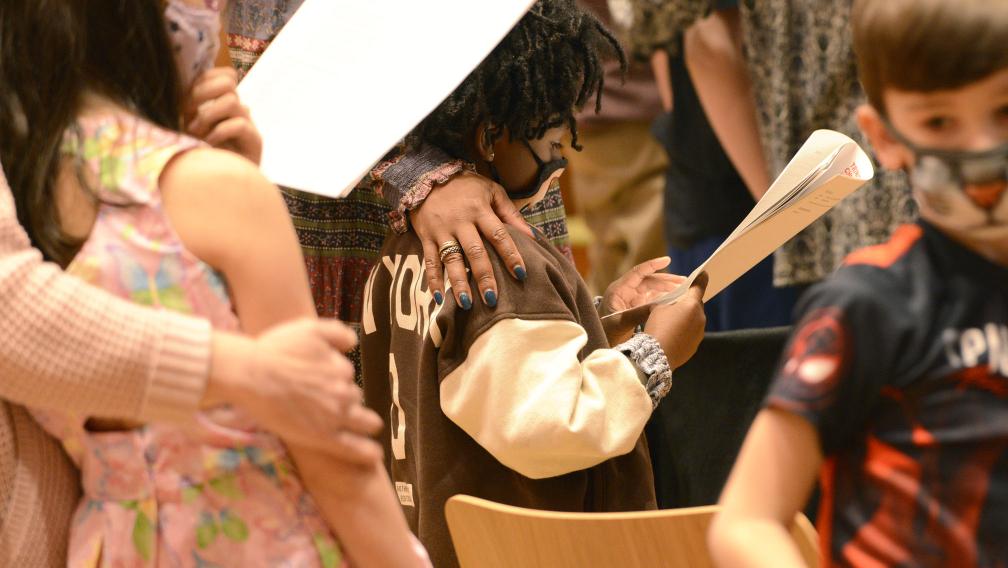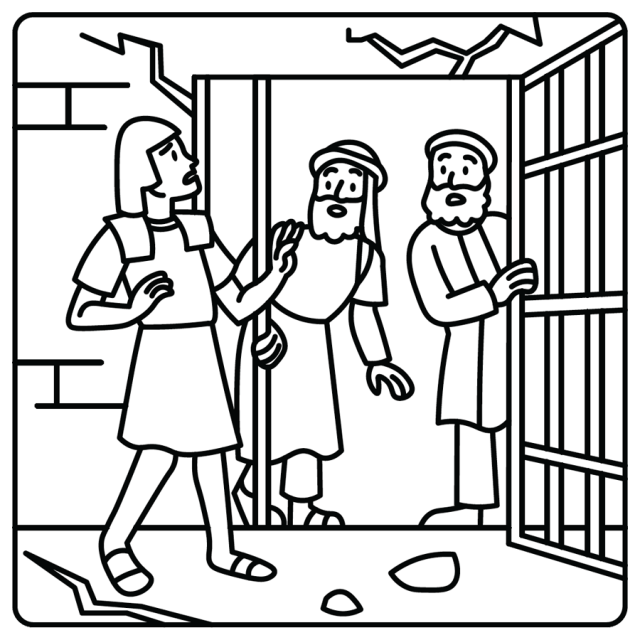The Seventh Sunday of Easter
Paul’s travels not only took him to different lands, they took him to new spiritual territory that tested him in unexpected ways. He and his friend Silas thought what they had to say about the good news of Jesus was the most important part of their ministry. They found out the hard way their certainty about their words and mission was not as clear and simple as they thought.
While doing and saying what they were sure was right, they wound up in jail and might have made life worse for a young, enslaved girl in the process. But through prayer and song while in jail, they realized God’s justice is bigger than merely knowing what’s right — and that the freedom to offer compassion and mercy is more powerful than any punishment.
Print, fold, read, and color the story booklet of Paul and Silas’s surprising adventure.
1. Sing and Dance
Memorial Day began when the Civil War ended, to honor fallen soldiers. There are many claims to holding the first observances. “However, one of the earliest and perhaps largest ceremonies was held in Charleston, South Carolina, in 1865,” according to the National Parks Service. “[I]n May 1865, newly freed African Americans reburied 257 Union soldiers, who had died in a prison camp and were hastily buried, in order to give them the proper honors in death. The new graves were blanketed by flowers and dedicated, with thousands of people parading down the racetrack that had been the site of the prison camp.”
So, let’s sing along with this song of freedom, hope, and remembrance: “Lift Every Voice and Sing,” also known as the Black national anthem.
Paul and Silas sang in prison. Many people sing in the shower, car, or bedroom. Our songs are powerful, even in the shower. When you sing, notice how your song makes you feel. Notice how your song changes your perspective.
2. Play and Pray
Play “That’s. Not. Fair!” Is there anything more frustrating to a child (or anyone) than being treated unfairly? What is the usual reaction? To retaliate? That often only “imprisons” us in an angry cycle. Our story today shows us that even mature adults like Paul can act on impulse.
With friends and/or family, sit in a circle. Take turns telling a short story of a time when you felt you were being treated unfairly. At the end of each story, chant, “That’s not fair,” going around the circle with each person saying one word at a time — starting with the storyteller saying, “that’s,” the person next to them saying, “not,” and the next saying, “fair.” Keep going around faster and faster until you’re all almost saying it together. Then stop. Breathe. Now, ask if anyone has a suggestion for what the storyteller could do to address the situation without causing more harm, or if they feel like they’re ready to forgive and move forward. Sometimes, instead of retaliating, it helps to remember that you are not alone. And you are not. God is always with you.
Pray: Dear God, who knows each of us individually, thank you for all the different people who tell their stories of experiencing your presence. Help us tell our stories of your love. Amen.
3. Create
Divide a piece of paper into four sections, either with folds or with lines. Label these sections family, friends, community, and world. In each of the quadrants, draw or write ways that we can share or show the good news of the gospel, that God loves us with compassionate justice, not punishment and reward.
Get 3 Ways Into Sunday’s Stories In Your Inbox
Sign up to receive updates from the Children & Families team.

